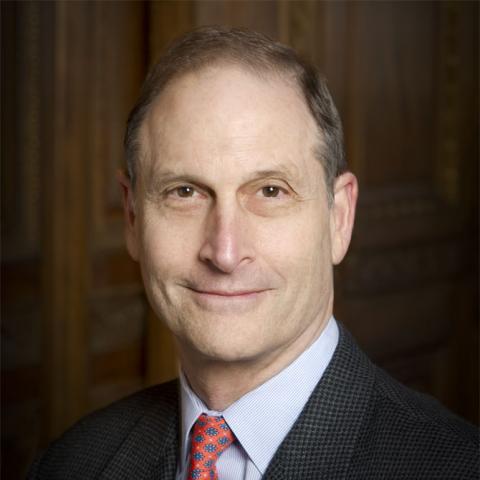President Donald Trump’s first year in office was one of the most frenetic and confusing periods in U.S. health care history. Beneath the apparent chaos, however, continuity ruled. Here are four enduring aspects of health policy that held true in 2017.
1. The Ghosts of Hamilton and Jefferson Still Stalk the Political Stage
The repeal and replace debate of 2017 continued the struggle that Alexander Hamilton and Thomas Jefferson set in motion in the first decades of the Republic. What began as a fight over whether the federal government had the right to establish a central bank presaged a continuing battle between advocates and opponents of governmental authority in the affairs of our nation. Jefferson believed passionately that individual freedom (mostly for white landholders at the time) and minimum government were keys to a successful American future. Hamilton believed that central authority had to play a role in solving the nation’s problems. Throughout 2017, that ideological struggle framed the health care debate that raged almost daily on the Senate and House floors and in American town halls. The contending perspectives of these two founders will likely animate health care debates as long as our Republic survives.
2. Once Granted, Benefits Are Hard to Take Away
Many watched incredulously as the President and the Congress sought repeatedly to radically restructure Medicaid and Affordable Care Act (ACA) markets in ways certain to reduce insurance coverage for tens of millions of Americans. The conventional wisdom held that politicians would shy away from inflicting so much pain on so many voters. Did the laws of political gravity no longer apply? It turns out they still did. For the first time since the ACA’s passage, public opinion swung behind it. Then John McCain of Arizona joined Susan Collins of Maine and Lisa Murkowski of Alaska in stopping repeal and replace by giving a thumbs-down on the Senate floor. Despite the later repeal of the individual mandate, the Affordable Care Act, including its Medicaid expansions and incentives for purchasing private insurance, is battered, bruised, and vulnerable, but still alive.
3. The Arc of History Bends Toward Coverage
The failure of repeal and replace affirms an observation that political scientist James Morone and I will advance in a forthcoming article. To borrow a phrase from Martin Luther King, Jr., the arc of history is long, but it bends toward coverage. Starting with the passage of Medicare and Medicaid in 1965, the U.S. has incrementally, erratically — but steadily — expanded the availability of health insurance coverage. Over the years, Medicare expanded to cover the disabled, those with renal failure, and then prescription drugs. Medicaid added the Children’s Health Insurance Program, which, after much partisan maneuvering, the Congress has now extended for another six years. Several states — notably Hawaii and Massachusetts — achieved near-universal coverage through their own devices. And then came the ACA. The proportion of uninsured Americans is currently at an historic low of 9 percent. The pendular quality of American politics periodically empowers the Hamiltonians, who wrench incremental insurance expansions from our resistant political system. When the Jeffersonian camp takes power, they find reversing those gains exceedingly difficult. Compared with other industrialized countries, which accomplished coverage in dramatic, comprehensive leaps, this zig-zag advance toward health care coverage seems chaotic, even bizarre. But a year of frenetic assaults on the most recent incremental expansion has not changed the course of history.
4. A New President’s Best Opportunity for Health Reform is Year One
Health care reform is complicated and politically fraught. Presidents and their allies undertake it at their peril, but if they are committed to major health care change, they can succeed only when the president’s political capital is at its height: during the first months of their first year in office. This is true even when presidents control both houses of the Congress, as President Trump does now.
Having failed to repeal and replace the ACA in his inaugural year, the President and his party are now grappling with the reality that their time for dramatic health reform has likely passed. They can and will whittle away at coverage through executive maneuver — particularly via state Medicaid waivers intended to discourage enrollment. But the difficult legislative action required to rip the ACA out root and branch no longer seems tenable. In what seems a reluctant admission of this fact, the GOP congressional leadership recently decided not to seek a reconciliation bill for 2018, thus abandoning hope not only for repeal and replace of the ACA before the coming midterm elections, but also Speaker Ryan’s long ambition to reform Medicare and Medicaid. If history is any guide, they will not return to wholesale revisions of the ACA until the President’s next term, if he has one, and even then, success is unlikely.
In stormy political seas, peering below the surface can be difficult. But Americans’ political institutions and attitudes do not change on a dime. This can be frustrating for fervent reformers in health and other sectors, but also reassuring for the long-term stability of our Republic. The first year of Mr. Trump’s presidency, for better or ill, did not fundamentally change the enduring dynamics of our health politics and policy.




